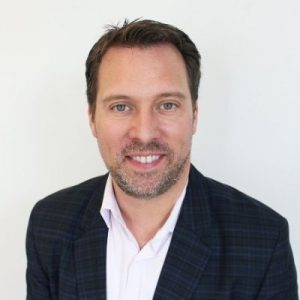Doug Shipman: The Atlanta Interfaith Manifesto can be the bridge for our young graduates
 This time of year brings graduation celebrations across the many campuses of Atlanta’s higher education institutions. This year’s graduating class was born in either 1995 or 1996. The actual events on the fateful day of September 11, 2001 are well chiseled into their memory, but more than likely via replayed videos rather than through direct experience. These recent graduates were only five or six years old when the attacks — largely fueled by religious intolerance and inflicted on people of many faiths — occurred.
This time of year brings graduation celebrations across the many campuses of Atlanta’s higher education institutions. This year’s graduating class was born in either 1995 or 1996. The actual events on the fateful day of September 11, 2001 are well chiseled into their memory, but more than likely via replayed videos rather than through direct experience. These recent graduates were only five or six years old when the attacks — largely fueled by religious intolerance and inflicted on people of many faiths — occurred.
The world these graduates grew up in has been marked by religious conflict, hatred, bigotry, and war. Several studies have found that many college-aged students believe religion to be the primary source of conflict in our world. They have grown up with images of “religious” people shouting, oppressing, and even killing those of similar and dissimilar faiths. The perception of faith as a great divider of individuals, groups, and countries is an easily supported and often reported “truth” in our newspapers today.
The past few months have seen religion as a point of conflict become more prevalent in the American discourse. From calls to ban entry to certain religious groups to violent crimes committed in the name of faith — the headlines have too often screamed of religious conflict in our major events. Our young people see the world they are entering as adults as one filled with interfaith conflict and division.
I continually find college-aged men and women I speak with confused with the current situation. Their personal experiences are at great odds with what they see on television. They are more comfortable talking about differences and exchanging ideas across religious lines than previous generations. They don’t “feel” faith as a divider among themselves. They have traveled extensively and have witnessed people in other contexts that paint a more complex, nuanced, and accommodating reality than the one they see in our media discourse. They are looking for a bridge between their reality and the perceptions they see reported around them.
The Atlanta Interfaith Manifesto is that unique bridge they are yearning to find. A bridge between past and present that provides hope that others before them have tread difficult ground to build trust across divisive lines. A bridge between the founding documents of the United States and the current political climate. A bridge between people of faith who want to undertake inter-religious dialogue. A bridge between Atlanta and the broader world.
My experience working to build and open the National Center for Civil and Human Rights in Downtown Atlanta showed me the powerful impact of stories. I was once asked by a Mom of two teenagers, “How am I supposed to get my kids to care about Civil Rights History?” I asked her if she had ever heard of Moses. She said, “of course.” I then asked her if she had ever met Moses. She looked at me skeptically and said, “No.” I then asked how she knew about Moses if she had never met him. She answered, “I know the story.” There was the answer — we care more deeply and remember longer when we know a great story.
The Atlanta Interfaith Manifesto is a bridge to the stories that give us hope. The stories of Mayor Ivan Allen Jr. being willing to put principle ahead of politics. The stories of ministers working for equality against the wishes of prominent institutions. The stories of students praying and working for social equality and justice. The stories of a city that remains a beacon of national progress.
Every person in Atlanta has an opportunity to share the Manifesto not as a directive, but as an invitation to share stories. I hope that each of us will find a few young people to share the stories of our past to inspire their future. There are thousands of young graduates with newly minted degrees who are thirsting for encouragement in building a world in the future that matches their experiences and hopes thus far in their lives. Let us be the bridges.
Doug Shipman is the Founding CEO of the National Center for Civil and Human Rights and is currently CEO of BrightHouse Consulting. He tweets @dougship.
